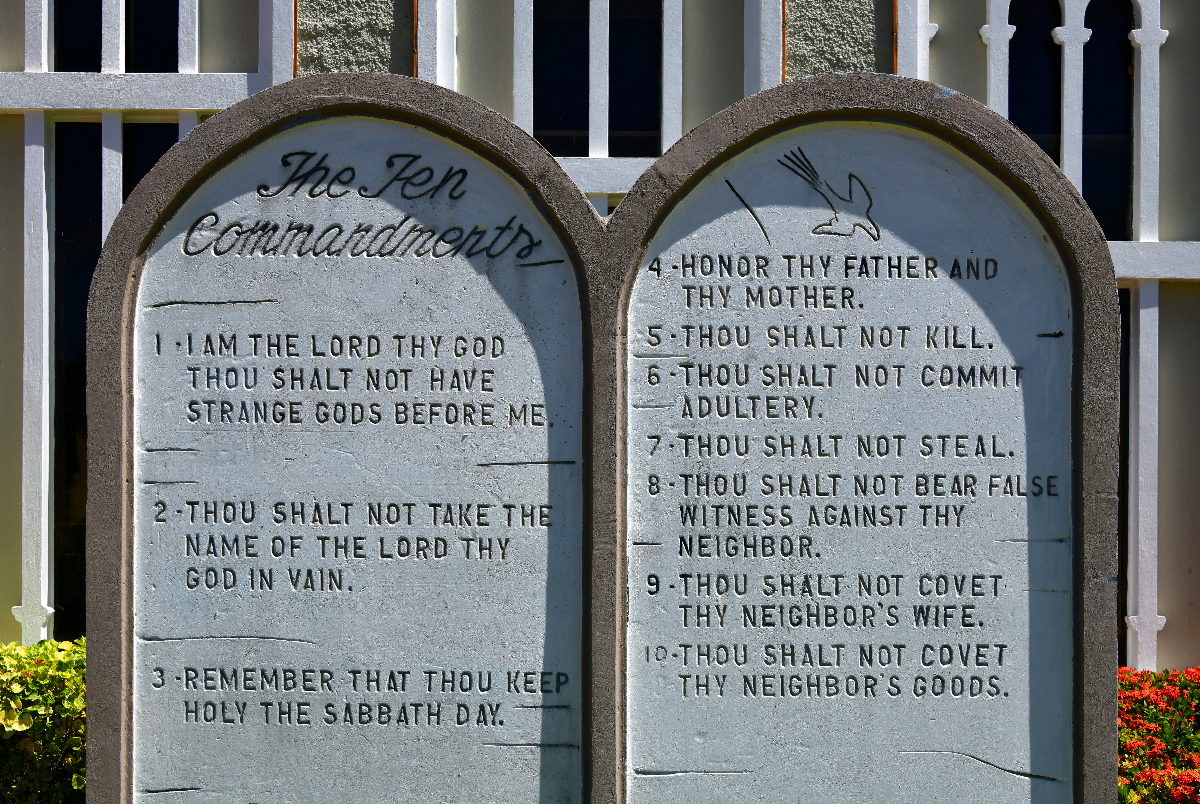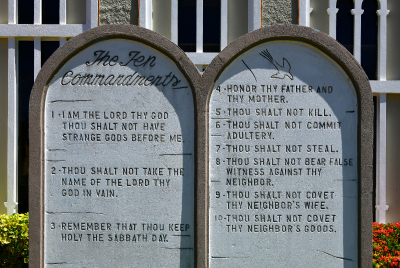How about displaying the Ten Commandments in churches?


There is a lot of talk in the media about whether or not the Ten Commandments should be displayed in public classrooms. I am actually more concerned about churches displaying the Ten Commandments in their own buildings and classrooms.
When Louisiana Governor Jeff Landry signed a law last week requiring the Ten Commandments to be posted in every public classroom in his state, it sparked a passionate debate about the place of those commandments in our schools. I thought, before we get so worked up and upset about the place of those commandments in our nation’s schools, how about we get so worked up and upset about posting them in our churches? If I were the head of a denomination, the first thing I would do is reinforce the requirement that every church post the Ten Commandments. After all, churches are supposed to be a light to the world. Yet how many churches post those commandments, let alone prominently display them, or use them in their services and liturgies?
The sad reality is that many churches do not do this for a variety of reasons. Many Protestants and evangelicals have forgotten their denominational heritage. Many have stopped deliberately catechizing their children with teaching materials that use the Ten Commandments. Some have slipped into antinomian theologies where there is no place for laws. And hardly any church refers to them on Sunday mornings unless a pastor is preaching on the book of Exodus or Deuteronomy. As a result, many sons and daughters of the Christian church have lost both their ethical framework and their distinctiveness. So do we really want to insist that our secular school system do what we do not?
I have argued elsewhere for displaying the Ten Commandments in our schools. I believe there are good reasons for doing so, but my first concern is with the Church. Even this suggestion will raise objections in various Christian traditions. Here are the two most common: “Aren’t you a legalist in suggesting this? After all, we are under grace, not law.” Others will add, “You are promoting moralism in the Church rather than the Gospel.”
My answer is simple: No, I am not a moralist. The gospel should always be the focus. And no, I am not a legalist either, because the gospel by which we are saved does not make the law meaningless. Did not Jesus say of this law that he did not come to abolish the law but to fulfill it (Matthew 5:17)? Did not Paul say that the law is holy and good (Romans 7:12) and “I delight in God’s law” (Romans 7:22)? Does not the New Testament reflect or repeat every one of these commandments, except for the Sabbath commandment, which was replaced by the Lord’s Day (although the principle of working six days and resting one day still applies)? Have we forgotten what the Ten Commandments are? They are a summary of God’s moral law, reflecting His justice and the moral grammar of creation. They are a gracious gift from the Almighty to humanity, describing the order that serves to maintain His creation and our social world.
The Ten Commandments applied not only to Israel, but to everyone. Historically, they were adopted by the Christian church. In fact, almost every Christian tradition uses the Ten Commandments in its official teaching materials (catechisms). This applies to Presbyterians, Lutherans, Baptists, Anglicans, Catholics, and Greek Orthodox. This is because the Ten Commandments are considered the foundation of Christian ethics.
How should they be used? As Presbyterians, my own tradition helpfully speaks of the “threefold benefit of God’s moral law.” There is a redemptive benefit—these commandments are something like a mirror reflecting the righteousness of God and a hammer shattering our own self-righteousness and leading us to Christ. The law itself cannot change people’s hearts, but Christ can. There is also a civil or political benefit—these commandments are a guide for society, promoting civil or external righteousness. In that sense, they provide a standard for making life in society worth living and act as a guardrail or fence to contain evil. Finally, the law functions as a kind of family code for believers, showing us how to please God in spirit as we live out our respective callings and do all things for his glory. This moral law is summarized in the two great commandments that we should love the Lord with all our heart, soul, mind, and strength, and that we should love our neighbor as ourselves.
The bill signed by the governor of Louisiana last week recognizes the political or civic utility of the Ten Commandments in promoting moral reason. My point is that the church also seems to have lost some of its moral reason and should also reacquaint itself with these commandments.
Towards the end of his life, the German reformer Martin Luther said: “Though I am an old doctor of theology, I have not yet advanced beyond what a child learns – the Ten Commandments, the faith (the Apostles’ Creed) and the Lord’s Prayer.” As an old man, he felt the need to go back to basics. I submit that the churches have not advanced beyond what a child learns either, and that they too urgently need to go back to basics.
Dr. Donald Sweeting is chancellor of Colorado Christian University.




